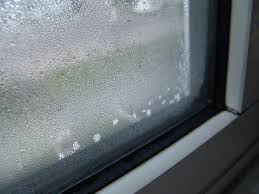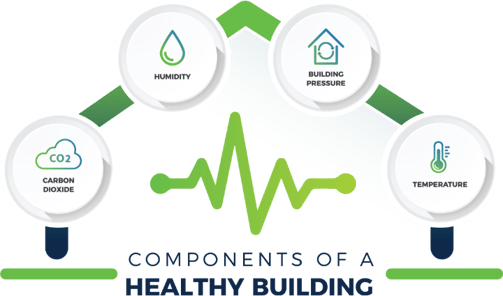As we transition from dry, cool winter months to hot, humid summer months, you may be saying to yourself, “Woohoo! Bring on the heat!” However, seasonal changes can affect building health.
Specifically, the summer season can present major problems for facility managers and building owners as their buildings' HVAC systems struggle to keep up with increasing cooling loads and extremely humid outdoor air.
Just as spring plant life sprouts, HVAC mechanical issues can pop up with warmer temperatures. Poor indoor conditions such as high indoor relative humidity, negative building pressure, CO2 buildup, or drastic temperature fluctuations are just a few examples.
Staying ahead of these issues before they become noticeable, costly problems is crucial when considering the overall health of your building and its HVAC systems.
Humidity: A Common Seasonal Issue
At various facilities, a common issue that comes with changing seasons is humidity. Specifically, humidity can be difficult to maintain at a comfortable level.

A Year-Round Solution for Indoor Building Health

Using Data to Plan for Seasonal Building Health Changes
Getting and staying ahead of maintenance doesn’t need to start with expensive truck rolls
and frequent site visits. Instead, sensor solutions provide an inexpensive, effective avenue to implement a proactive mindset. The collected data can be aggregated to an easy-to-use online portal capable of summarizing, visualizing, and diagnosing issues on site, while also granting users the ability to trend and predict HVAC performance for a lasting solution.
Does your facility experience seasonal building issues? Comment below. Get ahead of the changing seasons by verifying your building is healthy today!
